Last batch roasted 19/06/2025
Our third harvest purchasing coffee from Gilcimar Spavier, it's a coffee we really love - Brazilian but it tastes like a high grown washed central; the sort of coffee that has a little something for everyone.
That high-grown central profile we'd typically have to wait a few more months for; instead comes from a region of Brazil that sees longer cherry maturations and a delayed harvest as a result - but all the better for the wait. Typical conditions in Brazil means washed coffees have little to offer, but the Montanhas do Espírito Santo are really quite special.
This Catucaí 785 lot is a delight and emblematic of the unique profile of coffees in this region.
Brew Guide:
Best Brewed with: Filter
Light Roast Influence: We’re roasting this as light as is appropriate for a coffee like this - lower altitude and washed means it still needs a touch more development, but we can still keep it very light to keep the brightness and complexity at their max.
Best rested for 2-3 weeks
Filter: 60g/L and 96°C Water - with rest, we move down to 92°C.
Espresso: 18g, 45g, 28-32s.
We're tasting: Sweet cranberry and apple aromatics. In the cup there’s stewed plums, rooibos tea, dried cranberries and hazelnut praline; alongside a deep honey sweetness. As it cools the cup is like honey sweetened rooibos with milk; with redcurrant acidity.
Traceability:
Country of Origin: |
Brazil |
Region: |
Castelo, Espírito Santo |
Farm: |
Sitio Bateia |
Producer: |
Gilcimar Spavier |
Variety: |
Catucaí 785 |
Elevation: |
1020 - 1200 MASL |
Process: |
Washed: Ripe cherries hand picked, floated and pulped with a 12 hour wet ferment. Mucilage washed off before drying slowly on raised beds in Parabolic driers. A rarely seen process in Brazil. |
Import Partner: |
Osito |
Harvest: |
Crop 24/25, Arrived UK: April 2024
|
The Story
Gilcimar Spavier & Espírito Santo:
Gilcimar farms in the state of Espírito Santo, which is located on the South-Eastern coast of Brazil, just north of the state of Rio de Janeiro. Espirito Santo has a combination of factors that make it truly unique for coffee production - it is divided from the state of Minas Gerais by the Serra do Caparaó mountain range (including Brazil’s third highest mountain, Pico da Bandeira). The hilly topography extends down in either side of the Caparao mountains, providing ideal growing conditions for higher quality coffees. But Espirito Santo, being on the Atlantic facing side of the mountains has a climactic advantage - the humidity, cooler sea air and rains delay cherry maturation and allow for more interesting complexity to develop in the fruit.
But this was not always a feature - the region was previously known for defects and mainly robusta production, due to the issues the humidity and rain would cause in the drying process. The advent of specialty style processing, including parabolic/covered drying tents (think Polytunnels) allowed producers to control the drying process and prevent defects such as mould or rio. Producers in Espirito Santo can even produce washed process coffees with high acidity and complexity, something that is mostly not possible in the majority of coffee production in Brazil (typically, the end result would be very flat, nutty, hollow and simple).
Finally, due to the hilly & steep terrain as well as the history of emigration to the region, the majority of coffee farms in Espirito Santo are smallholder owned, typically 5-20 hectares, and usually run by single families, which means as coffee buyers we can get full traceability as to who has produced our coffee. We’ve chosen a regional blend of Espirito Santo coffees to be the main component in the Facility blend for these reasons.
Gilcimar is an exemplary example of a producer from this region. He’s quality focused and has won awards for his coffee, and produces consistently excellent coffees, including washed process. He runs his farm with his brother-in-law Jose Fortunado, and is a third generation coffee farmer.
His farm has 2 plots, one with majority Catuaí and Catucai varieties, and the second with Obata (a Brazilian variety that is a cross between Timor Hybrid and Villa Sarchi, which is both high yielding, disease resistant and has high cup quality). His typical production will be 200 bags of coffee, with 70 reaching speciality grade (and prices) with the remaining 130 being sold on the commercial market. As with many smallholder farmers in the region, it is not a lack of quality that prevents them from selling more of their production as speciality, but the high cost of labour in paying for pickers and lack of available pickers. He separates out each day’s picking and takes samples to the local exporting offices, who will cup the results. He keeps a track of those lots which score higher and careful notes as to what occurred during picking, processing and drying, allowing him to continuously improve, and to sell the higher quality day lots for a better price.
This lot comes from the first plot, and notably is washed. Gilcimar pulps his coffee, soaks & wet ferments it in a tank for 12 hours before washing. He then dries it slowly on raised African beds in a parabolic drier with controlled ventilation, taking 8 to 12 days ensuring the coffee is stable and that the quality will be preserved.

![[71] Brazil - Gilcimar Spavier [CROP 24/25 ARCHIVE]](http://scenery.coffee/cdn/shop/articles/brazil_gilcimar_2425_shopify.png?v=1752833707&width=1100)
![Colombia - Quebraditas Ají Thermal Shock Washed [FESTIVE SPECIAL] 🎄](http://scenery.coffee/cdn/shop/files/colombia_quebraditas_aji_shopify.png?v=1764358600&width=533)
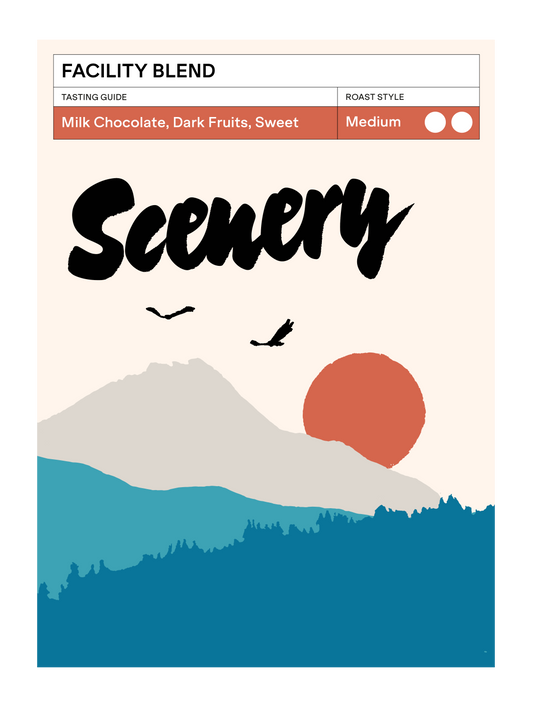
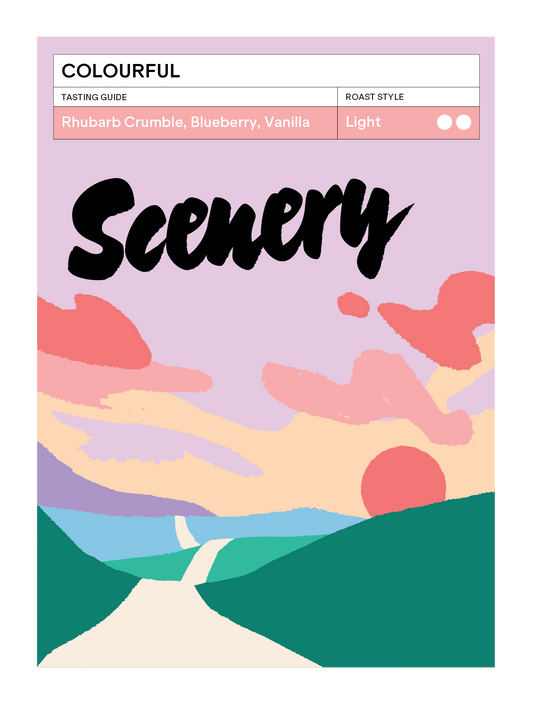
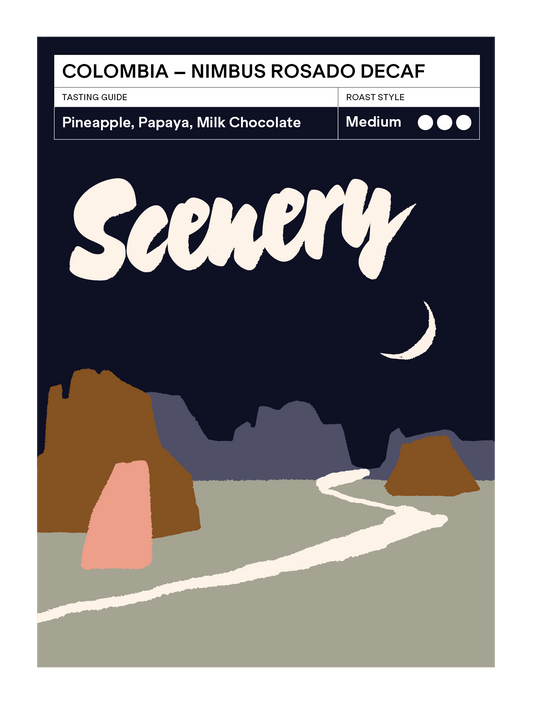

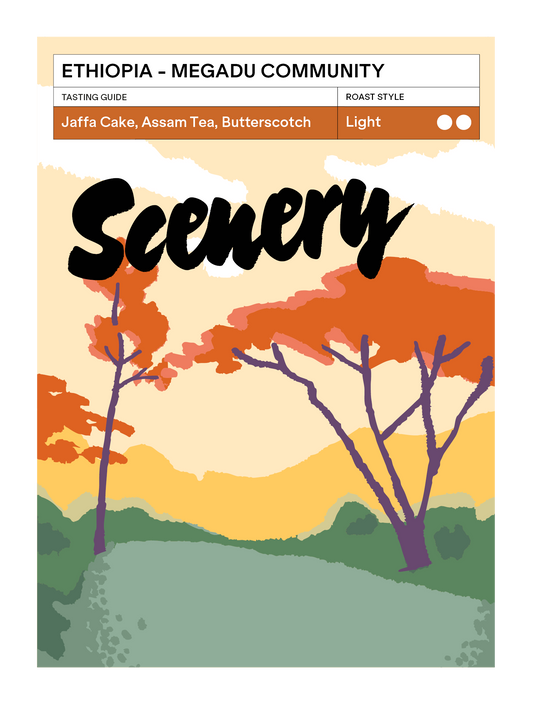

![Colombia - Quebraditas Sidra Thermal Shock Washed [25/26]](http://scenery.coffee/cdn/shop/files/colombia_quebraditas_sidra_2526_shopify.png?v=1765544630&width=533)



![Colombia - Luz Ángela's Chiroso [25/26]](http://scenery.coffee/cdn/shop/files/colombia_luz_angela_chiroso_2526_shopify.png?v=1764359755&width=533)

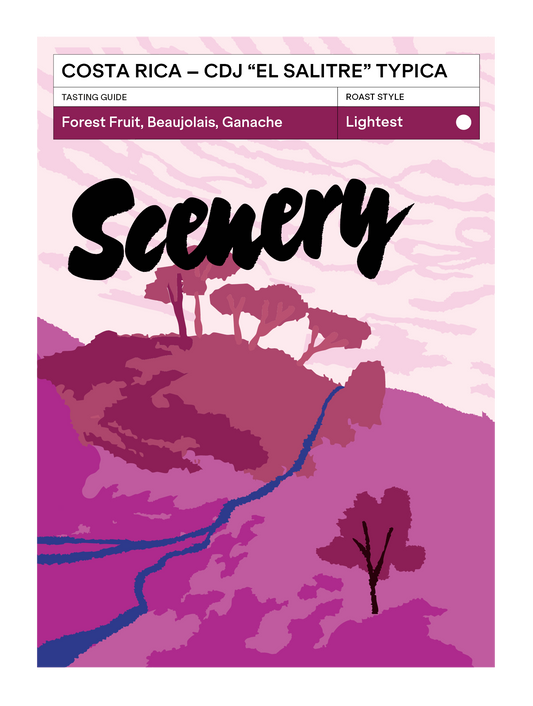
![Colombia - El Jaragual Rosado [25/26]](http://scenery.coffee/cdn/shop/files/el_jaragual_rosado_2526.png?v=1757075842&width=533)